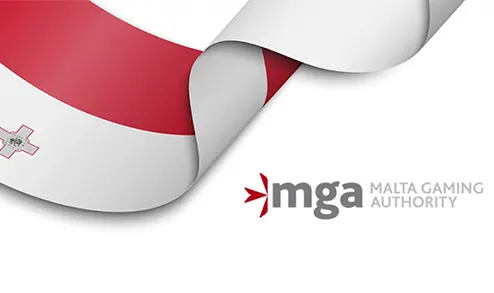 Earlier this month, the Malta Gaming Authority (MGA) suspended the licenses of Green Feather and SFJL Gambling and canceled EGMIT Elite’s license. Yesterday, The Shift reported that the gambling regulator decided to repeal its decision to suspend Green Feather’s license due to the operator’s prompt action and cooperation. This comes soon after the European Commission began asking questions about the recently-revised Gaming Act.
Earlier this month, the Malta Gaming Authority (MGA) suspended the licenses of Green Feather and SFJL Gambling and canceled EGMIT Elite’s license. Yesterday, The Shift reported that the gambling regulator decided to repeal its decision to suspend Green Feather’s license due to the operator’s prompt action and cooperation. This comes soon after the European Commission began asking questions about the recently-revised Gaming Act.
By suspending Green Feather’s license, the gambling watchdog demonstrated its regulatory authority and commitment to ensuring a safe gambling industry. The MGA, however, has lifted the suspension of the license held by Green Feather – the operator behind popular platforms like bcasino.com, bcasino.in, boocasino.com, boocasino.com, galacticwins.com, and mrfortune.com. This means that the operator can now carry out gaming operations without problems.
MGA Has Taken Its Regulatory Responsibilities Very Seriously
Two weeks ago, the Maltese gambling watchdog issued a suspension notification, listing minor violations related to the late submission of financial information. The MGA wrote that Green Feather failed to submit management accounts and financial statements within the designated timeframe, which led to the regulator’s actions.
Data shows that the regulator took similar moves against six other companies in the initial seven months of the year, while in August alone, the gambling watchdog took three regulatory actions. In February, the MGA canceled one license only. April saw two license cancellations followed by one in May, one in June, and another one in July. Industry experts claim that the flurry of recent regulatory actions could be an attempt by the MGA to enhance credibility in light of the new legislation.
On August 7, the MGA suspended SFJL Holding Limited’s license because the operator violated gambling regulations. The gambling authority explained that the company had failed to report internal changes as required by law. Five days earlier, the regulator canceled EGMIT Elite Limited’s gaming license, stating that the company failed to submit financial information on time, pay due taxes and fees, and meet commitments to players. The MGA also filed a police report and initiated liquidation proceedings as part of the action taken against the company.
The European Commission is to Determine Whether the Maltese Gambling Legislation is Compatible with EU Laws
Before the parliamentary summer recess, Maltese lawmakers passed controversial legislation, which has raised concerns about its compatibility with EU laws. The legislation at issue has garnered attention from the European Union and European Commission, which are now asking the Maltese government to provide more information on the new law.
The new reforms introduced to the Maltese Gaming Act seek to protect MGA licensees from foreign prosecution. Bill No. 55, known as The Gaming Act amendment, also stipulates that Maltese courts should reject recognition or enforcement of any foreign judgments brought against Malta-licensed gambling companies.
The Commission said it was aware of Malta’s draft bill and that further information on the future of the legislation would be available after assessing its compatibility. German Member of the European Parliament Markus Buchheit noted that Malta, which has always been the center of online gambling, recently enacted legislation to prevent residents of other EU states from taking legal action against Malta-based gambling companies illegally operating in their countries. He asked commissioners what steps they intend to take to clamp down on illegal gambling and safeguard players.
 Lotus365, a Curacao-licensed gambling site, has made the headlines after it became clear that it uses misleading ads to lure in newcomers. The gambling site has reportedly come up with a new promotional offer advertised by celebrities, who can easily influence people. Although Lotus365 is licensed in Curacao, this license is not recognized by the Indian government, meaning the betting site operates illegally in India. But this does not stop the offshore betting platform from using surrogate advertising to promote its services.
Lotus365, a Curacao-licensed gambling site, has made the headlines after it became clear that it uses misleading ads to lure in newcomers. The gambling site has reportedly come up with a new promotional offer advertised by celebrities, who can easily influence people. Although Lotus365 is licensed in Curacao, this license is not recognized by the Indian government, meaning the betting site operates illegally in India. But this does not stop the offshore betting platform from using surrogate advertising to promote its services.  The Swedish National Audit Office has announced that it plans to review the gambling regulator’s work, actions, strategies, and effectiveness in establishing a safe and responsible gambling market. The move follows the introduction of new gambling regulations and policies in the Nordic country. By reviewing Spelinspektionen’s work, the audit office aims to determine whether the regulator’s actions are efficient enough and if there is room for improvement.
The Swedish National Audit Office has announced that it plans to review the gambling regulator’s work, actions, strategies, and effectiveness in establishing a safe and responsible gambling market. The move follows the introduction of new gambling regulations and policies in the Nordic country. By reviewing Spelinspektionen’s work, the audit office aims to determine whether the regulator’s actions are efficient enough and if there is room for improvement.  Jeju Island, a well-known South Korean gaming hub, has abandoned its plans to introduce “proxy betting” within its foreigner-only casinos due to a lack of interest on behalf of the industry. The island’s government stated that the idea failed to garner interest from the local casino operators and could potentially lead to diplomatic and technical complications.
Jeju Island, a well-known South Korean gaming hub, has abandoned its plans to introduce “proxy betting” within its foreigner-only casinos due to a lack of interest on behalf of the industry. The island’s government stated that the idea failed to garner interest from the local casino operators and could potentially lead to diplomatic and technical complications.  On Friday, the Nebraska Gaming Commission held a meeting, during which it allowed the Grand Island Casino Resort to offer table games. Commissioners also approved a market study to examine the possible impact of opening a new racetrack in western Nebraska. This is the first official step that the gambling regulator takes on Hastings Exposition & Racing Inc.’s request to have its racing license moved from Hastings to Ogallala as of 2024. The study will cost $48k and will be executed with the help of the Innovation Group company for a period of 12 weeks.
On Friday, the Nebraska Gaming Commission held a meeting, during which it allowed the Grand Island Casino Resort to offer table games. Commissioners also approved a market study to examine the possible impact of opening a new racetrack in western Nebraska. This is the first official step that the gambling regulator takes on Hastings Exposition & Racing Inc.’s request to have its racing license moved from Hastings to Ogallala as of 2024. The study will cost $48k and will be executed with the help of the Innovation Group company for a period of 12 weeks. 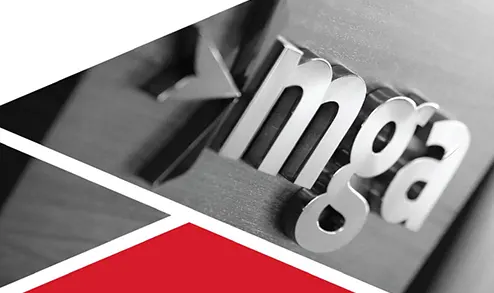 The Malta Gaming Authority (MGA) is seeking legal guidance on the potential consequences of signing an agreement known as the Macolin Convention. The country had been refusing to ratify the said agreement since 2014, objecting to the definition of “illegal sports betting”. But it seems that the pressure imposed by the European Commission and Parliament on the Maltese regulator was enough to make it consider signing the Macolin Convention.
The Malta Gaming Authority (MGA) is seeking legal guidance on the potential consequences of signing an agreement known as the Macolin Convention. The country had been refusing to ratify the said agreement since 2014, objecting to the definition of “illegal sports betting”. But it seems that the pressure imposed by the European Commission and Parliament on the Maltese regulator was enough to make it consider signing the Macolin Convention.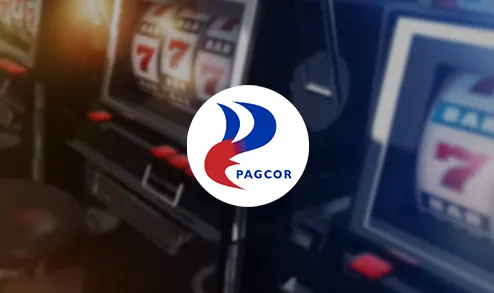 Alejandro Tengco, Chairman and Chief Executive Officer of the Philippine Amusement and Gaming Corporation (PAGCOR), announced that the regulator is to take 33 offshore gambling operators, also known as POGOs, to court for failing to pay fees amounting to P2.02 billion. Mr. Tengco explained that the offenders are operators who have obtained licenses during the previous administration. He added that the POGOs violated Section 4.C of the Offshore Gaming Regulatory Manual by not paying their fees for over a year now.
Alejandro Tengco, Chairman and Chief Executive Officer of the Philippine Amusement and Gaming Corporation (PAGCOR), announced that the regulator is to take 33 offshore gambling operators, also known as POGOs, to court for failing to pay fees amounting to P2.02 billion. Mr. Tengco explained that the offenders are operators who have obtained licenses during the previous administration. He added that the POGOs violated Section 4.C of the Offshore Gaming Regulatory Manual by not paying their fees for over a year now. 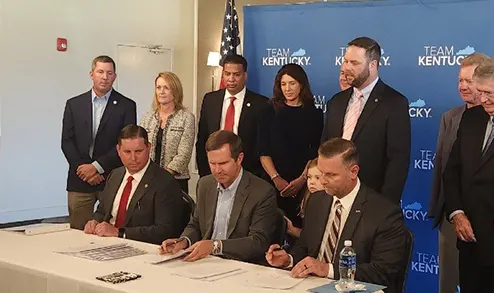 This Thursday, Kentucky’s Governor Andy Beshear shared the latest update and a timeline of key dates concerning the launch of sports betting in the state. Gov. Beshear announced that in-person sports gambling at licensed retail betting shops will officially start at 10 am EDT on September 7. Mobile sports betting is to launch on September 28.
This Thursday, Kentucky’s Governor Andy Beshear shared the latest update and a timeline of key dates concerning the launch of sports betting in the state. Gov. Beshear announced that in-person sports gambling at licensed retail betting shops will officially start at 10 am EDT on September 7. Mobile sports betting is to launch on September 28.  Roblox, a well-known online gaming platform, has been accused of organizing an illicit gambling ring preying on minors, Bloomberg Law reported earlier today. Concerned parents, Rachel Colvin and Danielle Sass, have filed a class action lawsuit against Roblox Corp. in the U.S. District Court for the Northern District of California.
Roblox, a well-known online gaming platform, has been accused of organizing an illicit gambling ring preying on minors, Bloomberg Law reported earlier today. Concerned parents, Rachel Colvin and Danielle Sass, have filed a class action lawsuit against Roblox Corp. in the U.S. District Court for the Northern District of California. 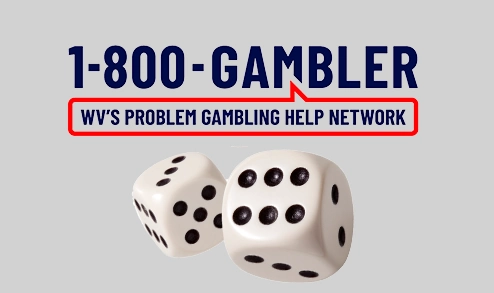 West Virginia’s Problem Gambling Help Network is taking action to address the issue of youth gambling by allocating over $40k in grant funding to community organizations. The organizations will incorporate evidence-based curricula to inform young people about the risks associated with gambling, dispel common misconceptions, and educate them about the impact of gambling advertisements. Additionally, they will teach young people how to recognize the signs of gambling addiction.
West Virginia’s Problem Gambling Help Network is taking action to address the issue of youth gambling by allocating over $40k in grant funding to community organizations. The organizations will incorporate evidence-based curricula to inform young people about the risks associated with gambling, dispel common misconceptions, and educate them about the impact of gambling advertisements. Additionally, they will teach young people how to recognize the signs of gambling addiction.